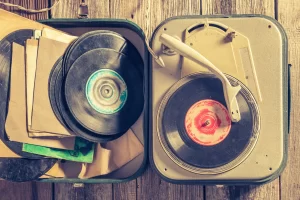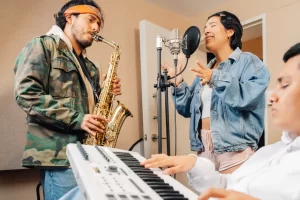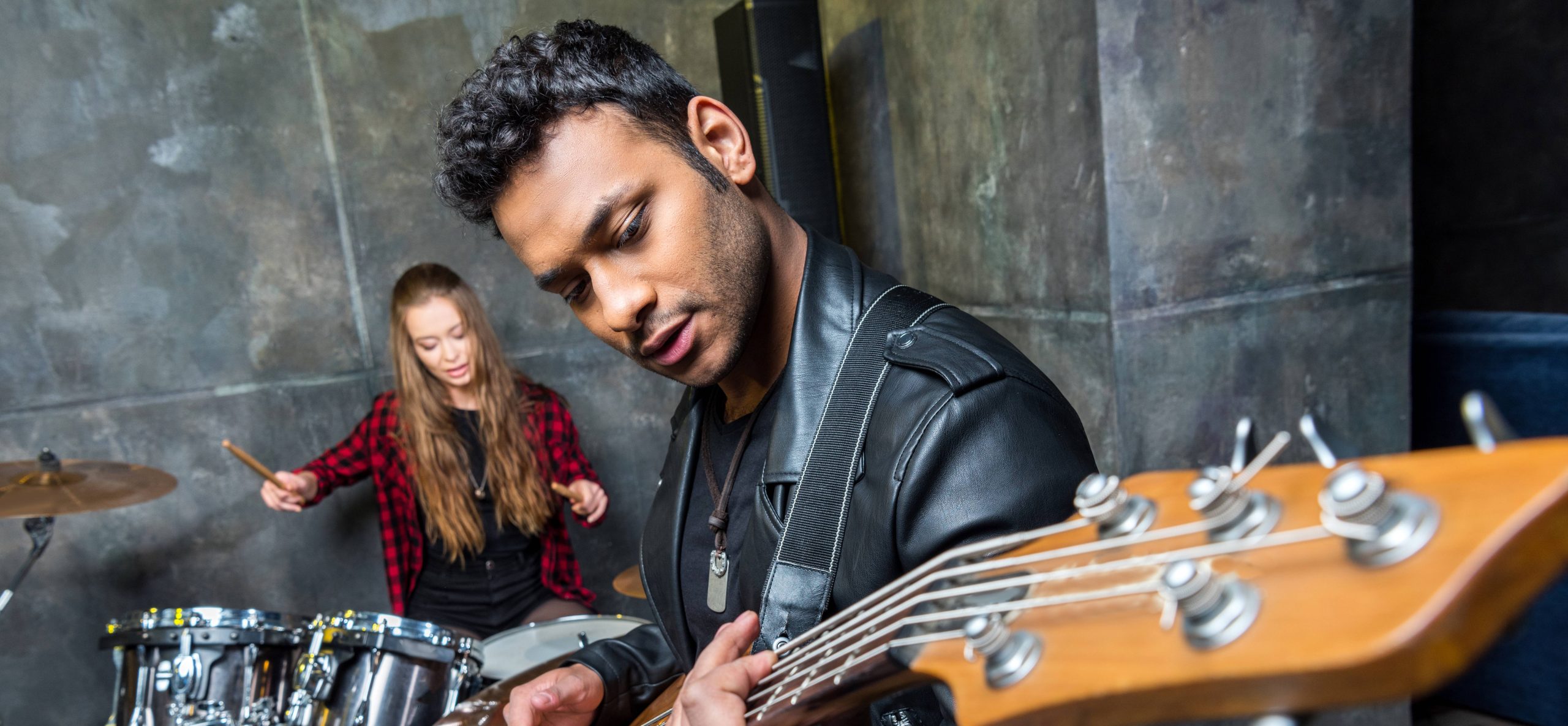In today’s hyper-connected world, the music industry is not just about creating great music; it’s also about effectively marketing that music to reach the right audience. As emerging artists and established musicians alike can attest, the landscape of music promotion has drastically changed in recent decades. From record store promotions and radio play to social media campaigns and Spotify playlists, the methods for getting music into the ears of listeners are evolving at a rapid pace.
One of the most significant shifts we’re witnessing in this digital age is the increasing use of automation in marketing strategies across various industries, and the music industry is no exception. Automation, the technology by which a process or procedure is performed with minimal human assistance, is poised to revolutionize the way music is marketed. It promises more efficient processes, targeted outreach, and unprecedented scalability.
This article will delve into the fascinating intersection of automation and music marketing. We’ll explore the evolution of music promotion, the rise of automation, and how these two worlds are colliding to create new opportunities and challenges for artists and marketers alike. Whether you’re a musician, a marketer, or simply a music enthusiast, this exploration will provide valuable insights into the rapidly changing dynamics of music promotion in the digital age.
The Evolution of Music Marketing
Music marketing has come a long way from its traditional roots. In the early days, marketing music was mostly about securing radio play, organizing live shows and tours, and getting records onto store shelves. Word-of-mouth promotion and printed press were also pivotal in creating buzz around new releases.
However, as technology advanced, the music industry had to adapt. The rise of television introduced opportunities for music videos and appearances on popular TV shows. Then came the internet, which completely transformed the landscape of music promotion. Suddenly, artists had a global platform where they could release their music and connect with fans directly. This shift democratized music distribution, allowing independent artists to bypass traditional gatekeepers and reach listeners on their own terms.
Social media platforms further revolutionized music marketing. Networks like Facebook, Twitter, and Instagram gave artists the means to share their work, communicate with fans, and build their personal brand. Meanwhile, streaming platforms like Spotify and Apple Music introduced playlist features, providing a new avenue for song promotion.
In recent years, we’ve seen the rise of influencer marketing and partnerships, where musicians collaborate with popular social media personalities or brands to reach a wider audience. User-generated content, especially on platforms like TikTok, has also become a powerful tool in music promotion.
Today, data-driven strategies are becoming more prevalent. With the wealth of user data available from digital platforms, artists and marketers can now understand who their listeners are, what they like, and how they engage with music. This allows for more personalized and targeted marketing efforts.
Despite these changes, the goal of music marketing remains the same: to get the music heard by as many people as possible. However, the methods and tools used to achieve this goal are continuously evolving, and automation is the latest trend set to reshape the music marketing landscape.
Understanding Automation
Automation, in its simplest form, is the use of technology to execute repetitive tasks or processes with minimal human intervention. It’s a concept that has been around for centuries, from simple machines in the industrial revolution to the complex software systems we see today. Automation is now a common feature in various sectors, from manufacturing and retail to healthcare and finance.
In the context of marketing, automation involves using software tools and artificial intelligence to streamline and scale marketing activities. This can include everything from scheduling social media posts and sending out email newsletters, to segmenting audiences and personalizing content. The key objective is to increase efficiency, reduce human error, and free up time for more strategic tasks.
Marketing automation tools can handle repetitive tasks much faster and more accurately than humans. They can also work 24/7 without fatigue, ensuring that marketing efforts continue round the clock. Moreover, these tools can gather and analyze data, providing valuable insights that can inform future marketing strategies.
However, automation is not about replacing humans entirely. Instead, it’s about augmenting human capabilities, allowing marketers to focus on creative and strategic aspects of their work while the routine tasks are automated.
In the music industry, automation can take many forms. From automated email campaigns that notify fans of new releases or concerts, to AI algorithms that analyze listener behavior and recommend songs on streaming platforms. As we delve deeper into the intersection of automation and music marketing, it’s important to keep in mind the potential of this technology to transform the way music is promoted and consumed.
The Intersection of Automation and Music Marketing
As we’ve seen, both music marketing and automation have undergone significant transformations over the years. Now, these two worlds are intersecting, creating new possibilities for promoting and discovering music.
One of the primary ways automation is being used in music marketing is through data analysis. Streaming platforms like Spotify and Apple Music collect vast amounts of data on listener behavior. Using AI algorithms, they can analyze this data to understand individual music preferences, which informs the songs and artists they recommend to each user. This level of personalization would be impossible without automation.
Marketing automation tools are also becoming more prevalent in music promotion. These tools can automate a range of tasks, from scheduling social media posts to sending out email campaigns. For instance, an artist can schedule a series of posts promoting a new album to be published across their social media platforms at optimal times. They can also set up an email campaign to notify fans of upcoming concerts or releases, with messages personalized based on past engagement.
Automation is also making its way into the creation of music videos. AI algorithms can now analyze a song’s tempo, mood, and lyrics to generate a corresponding video. While this technology is still in its early stages, it has the potential to significantly reduce the time and cost involved in producing music videos.
In the live music scene, automation is being used to enhance the concert experience. From automated lighting and special effects to AI-powered ticketing systems that optimize seating arrangements and pricing, automation is improving efficiency and personalization in live music events.
While the use of automation in music marketing is still evolving, it’s clear that it holds immense potential. By freeing up time, providing valuable insights, and enabling unprecedented personalization, automation is set to revolutionize the way music is promoted and consumed. As the technology continues to advance, we can expect to see even more innovative applications of automation in music marketing.
The Future of Automated Music Marketing
As we look towards the future, it’s clear that automation will continue to play a significant role in music marketing. With advances in artificial intelligence and machine learning, the possibilities for automated music marketing are expanding.
One area where we can expect to see significant growth is in predictive analytics. By analyzing data from past campaigns and listener behavior, AI algorithms can predict which marketing strategies are most likely to succeed. This could help artists and labels make more informed decisions about everything from release dates to tour locations.
Another promising development is the rise of chatbots and voice assistants. These AI-powered tools can engage with fans directly, answering questions, recommending music, and even selling merchandise or tickets. As these technologies become more sophisticated, they could provide a more personalized and interactive experience for fans.
Moreover, we might see an increase in the use of AI in content creation. From creating promotional videos to writing social media posts, AI could help automate and streamline the content creation process. This would not only save time but also allow for more consistent branding and messaging.
Additionally, automation could help democratize music marketing. Independent artists and small labels, who often have limited resources, could use automation tools to reach a wider audience and compete with larger players in the industry.
However, as we move towards a more automated future, it’s important to remember that technology is a tool, not a replacement for human creativity and intuition. The most effective music marketing strategies will likely be those that combine the efficiency and scalability of automation with the creativity and personal touch of human marketers.
The future of automated music marketing looks bright, with numerous opportunities for innovation and improvement. As technology continues to evolve, so too will the ways in which we promote and consume music.
To Sum It Up
The intersection of automation and music marketing presents an exciting frontier in the music industry. With the power to streamline operations, enhance personalization, and provide insightful data, automation is set to revolutionize how music is promoted and consumed. Predictive analytics, chatbots, AI-driven content creation, and democratization are just a few areas where we can expect significant advancements in the future.
However, it’s crucial to remember that while automation offers immense benefits, it should complement, not replace, human creativity and intuition. As we navigate this evolving landscape, the fusion of technology with human touch will likely create the most impactful music marketing strategies. The future of automated music marketing is undoubtedly bright, and it will be fascinating to witness the innovations that lie ahead.
If you’re looking to sell your music on major platforms and benefit from the democratization of music distribution, sign up for free with Novecore and let us help distribute and monetize your music.




